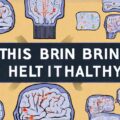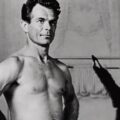Embrace Exercise and Movement
Fauja Singh has run marathons around the world well into his hundreds, inspiring people young and old. While not everyone needs to take up marathon running, incorporating regular exercise like walking, swimming or strength training helps keep the body and mind active.
Eat a Nutritious, Balanced Diet
Fueling your body with whole foods like fruits, vegetables, whole grains, lean protein and healthy fats gives you energy and vital nutrients for health. Hydration is also key. As Singh says “If you do not drink enough water, all parts of your body will go wrong.”
Stay Socially and Mentally Engaged
Keeping an active social life and learning new things helps prevent cognitive decline. Share stories with friends, take up hobbies and games that challenge your mind or volunteer in your community.
Get Plenty of Rest
Quality sleep keeps your immune system strong and improves mood and brain function. Aim for 7-9 hours per night. Establishing a calming pre-bed routine helps prepare both body and mind for rest.
Reduce Stress
Chronic stress takes a toll on health and aging over time. Practice relaxation techniques like meditation, yoga, deep breathing and getting outdoors in nature.
Stay Positive and Purposeful
Focusing on gratitude, having goals to work towards and feeling connected to something bigger than ourselves contributes to wellbeing and longevity.
Don’t Act Your Age
Singh ran his first marathon at age 89 and continued into his hundreds. He says the key is not to think about your age: “If you do, you will feel tired.” Stay active and engaged in life with a youthful spirit.
Frequently Asked Questions
What is the main message of Fauja Singh’s longevity tips?
The key message is to stay active physically, mentally and socially while nourishing your body with healthy foods and an upbeat attitude, no matter your age.
How much exercise should older adults get?
The WHO recommends 150 minutes per week of moderate activity like walking for older adults. Adding muscle-strengthening 2 days a week is also beneficial.
What are some examples of brain-stimulating activities?
Reading, puzzles, card or board games, learning a language, playing a musical instrument and socializing are all excellent for brain health.
Is diet more or less important as you age?
Nutrition is just as, if not more important in later life to provide energy, protein for muscle mass, and nutrients to support immunity and organ function.
What is the best way to reduce stress?
Developing personalized stress management practices like breathwork, meditation, yoga, spending time in nature and cultivating gratitude and social connections can effectively lower stress.









